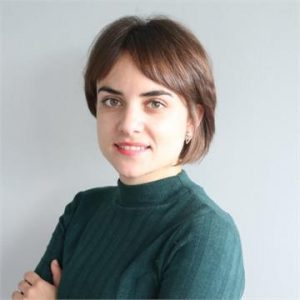March 31, 2022, by Postgraduate Placements Nottingham
My research visit to Sweden exceeded all my expectations
One of our ESRC researchers, Sara Palacios Arapiles, talks about her overseas institutional visit at University of Lund in Sweden.
The past term, I did a 3-month research visit to the Faculty of Law of Lund University (Sweden). I chose Lund because my doctoral research focuses on the asylum system of various European countries, including Sweden and Denmark. Located in the Öresund region (which comprises southern Sweden and eastern Denmark), the university and members of the Faculty are part of networks across the region. The Faculty of Law further hosts a vibrant community of scholars engaged in international refugee law, migration studies and human rights, and more broadly in international law. Thus, it was an idea place for me.
Since the very beginning, colleagues made me feel part of the School, and not just a “visitor”. Not only did they invite me to seminars directly relevant to my research, School meetings and related activities, but also to social gatherings and the Christmas dinner. Coffee was always ready in the morning together with boxes of fruits. This, as I later learned from my colleagues, is a common practice in the Nordic countries, which I would love to see implemented in Nottingham.
During my research visit, I established research networks and developed links with colleagues in my field both in Lund, and at other universities across the Öresund region. I also presented my research at a seminar hosted by the School, and at a research meeting of the OMiLI network (a network of migration and asylum scholars in Sweden and Denmark), where I received very constructive feedback and useful comments, including on innovative or less traditional methods to disseminate my research.
In particular, I was encouraged to use podcasts to disseminate my research findings more widely, given that some commentators found my research to be of interest to different audiences not confined to academia, such as politicians or refugee communities. I have never thought of podcasts as a means of getting the findings of my research to people outside of academia before, but this is something that I am seriously considering since then. Besides formal academic exchanges, I also had opportunities for informal interactions. As many of the PhD students at the Faculty do research on migration, I suggested a weekly “coffee migration talk” where we could informally meet to discuss common research areas; a proposal that was warmly welcomed. We used to meet over a coffee and fika, a traditional Swedish sweet, at the faculty facilities and discuss topics relating to our research area, ranging from current developments in literature or jurisprudence, to research methods or forthcoming conferences or seminars.
Overall, the research visit exceeded all my expectations. I had never thought that I would have the opportunity to meet so many scholars doing research on topics similar to mine, or at least in the same field, or that I would be invited to present my research on various occasions to different research groups, nor that future collaborations could arise from my stay at Lund. Indeed, after my departure, I have continued in contact with some of my former colleagues at the School and a former colleague and I have planned to write an article together given that our research intersects.
I am very grateful to the School of Law of Lund University for having invited me as a visiting researcher, and to the ESRC for the Overseas Institutional Visit (OIV) award. I really hope to maintain the working relationships that I established there and that collaborations continue to arise.
About the ESRC-DTP:
Dedicated Researcher Academy staff manage three strategic University of Nottingham doctoral training programmes (DTPs) in collaboration with external partners. The Researcher Academy’s management of these schemes has created a network of expertise and repositories of best practice with inward and outward flows of knowledge exchange. The Researcher Academy DTPs have been able to advise and support Schools on bid development, while these DTPs have in turn benefited from the insights and skills of partners in the Researcher Academy Placements and Training and Development teams, the university’s Careers Service, and industry partners. > More information.
No comments yet, fill out a comment to be the first


Leave a Reply